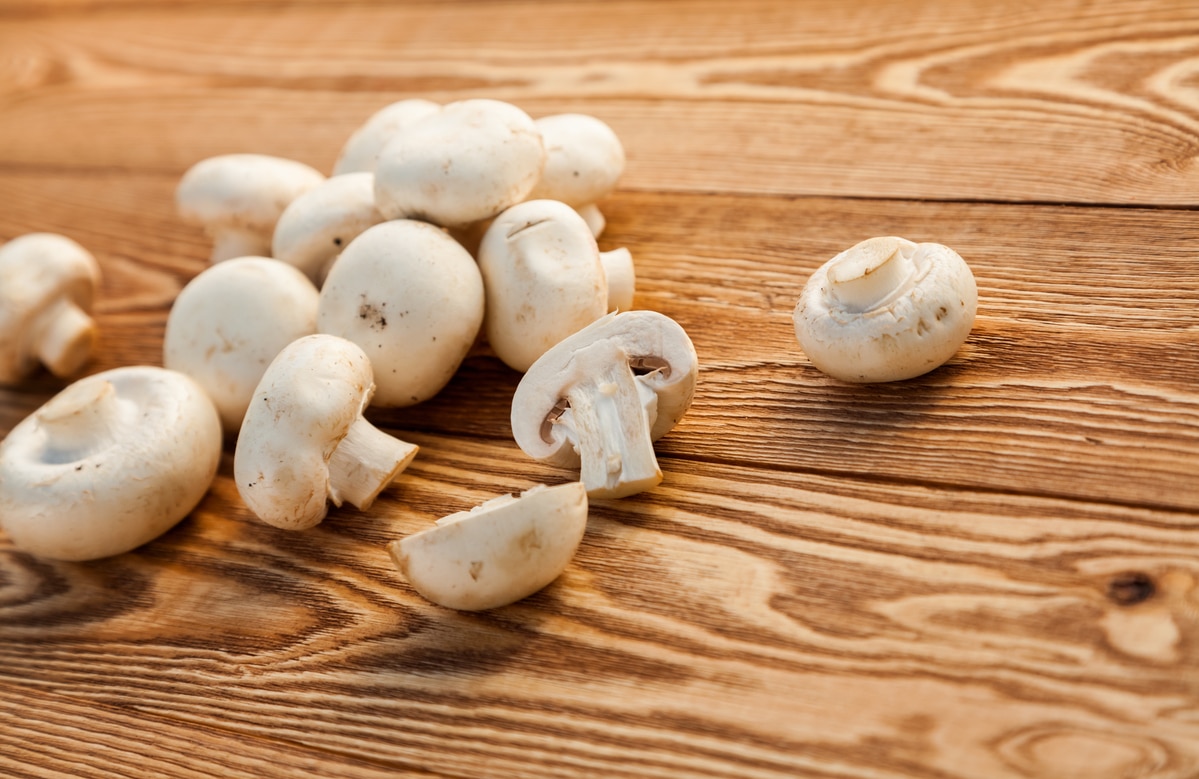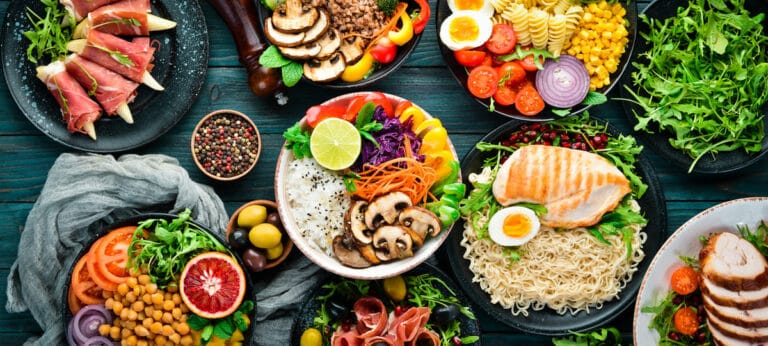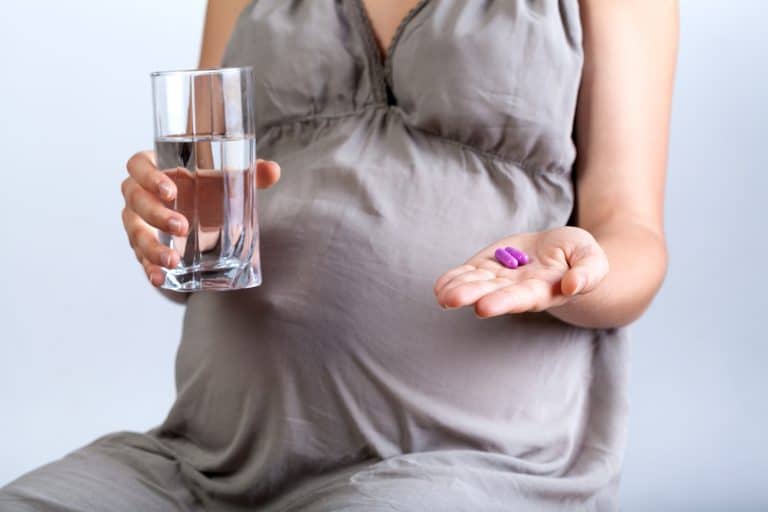It’s a common question that many pregnant women have: Can I eat mushrooms during pregnancy? The answer is both yes and no. While there are some types of mushrooms that you should avoid during pregnancy, other types can actually be beneficial. In this blog post, we’ll discuss the different types of mushrooms that you cannot eat during pregnancy.
Mushrooms are a type of fungi that grow in the wild and are also cultivated for food. They come in different shapes and sizes and have a wide variety of colours. Mushrooms are low in calories and high in nutrients, which is why they’re such a popular addition to various dishes. Mushrooms while pregnant can have both benefits and risks. Pregnant women are usually advised to eat mushrooms that have been cooked properly to reduce the risk of food poisoning.
Mushrooms are a good source of vitamins and minerals, including vitamin D, selenium, potassium, copper, and zinc. They also contain antioxidants that may help protect the body against cell damage. Pregnant women need more vitamin D than non-pregnant women, and mushrooms are one of the few plant-based sources of this nutrient. But it also be avoided during pregnancy as some species of mushroom found in the wild can be poisonous. But can pregnant women eat mushrooms lead to miscarriage? Let’s take a closer look.
In This Article
Is eating mushrooms during pregnancy safe?
Can you eat mushrooms in pregnancy? The answer is Yes. Although eating mushrooms when pregnant is generally considered safe, there are a few things to be aware of. Some mushrooms contain small amounts of mercury, which can build up in the body and potentially cause problems for both the mother and child. Pregnant women should therefore avoid eating mushrooms that grow in contaminated areas or that have been exposed to contaminated water.
A mushroom during pregnancy can also sometimes cause an allergic reaction, so it is important to know if you are allergic to mushrooms before consuming them. If you experience any adverse effects after eating mushrooms, such as vomiting or diarrhea, consult your doctor immediately.
In general, however, mushrooms are a healthy and nutritious food that can be enjoyed by pregnant women. They are a great root of vitamins, minerals, and antioxidants, and can help to boost the immune system. Just be sure to wash them thoroughly and cook them well before eating. Also, there is some type of mushrooms you should avoid when you’re pregnant. It’s best to avoid eating wild mushrooms during pregnancy. This is because it’s difficult to identify which mushrooms are safe to eat, and which ones aren’t. So, make sure you consult your doctor or a registered dietitian before including mushrooms in your diet.
What are the benefits of eating mushrooms during pregnancy?
As we said, a mushroom is a low-calorie food and are a good source of several nutrients. They are a good source of protein, fiber, B vitamins, copper, selenium, and potassium. Mushrooms also contain antioxidants that can help protect the body against free radicals. There are many different benefits of mushrooms available, so it is important to select the right type of mushroom for your needs.
1. Promote healthy bones
For the expected moms, mushrooms are a boon as they are rich in vitamin D, which is essential for the development of bones and teeth in the fetus. Also, mushrooms help the body absorb calcium better. In the other words, they are good for both the mother and the child’s bone health.
2. Boost Immune System
Eating mushrooms during pregnancy will help you to stay away from cold and flu. This is because mushrooms have selenium, an important mineral for pregnant women, which helps to boost the immune system. On the other hand, some medicinal mushrooms like reishi and cordyceps can help to fight off fatigue, anemias, and other common pregnancy complaints.
3. Enriched with protein and fiber
As we said above, mushrooms are a rich source of protein and fiber. They help you to feel fuller for longer, which is helpful if you’re trying to control your weight during pregnancy. Fiber also helps to regulate digestion, which is often disrupted during pregnancy.
4. Help in Digestion:
During pregnancy, many women suffer from digestive issues like constipation and heartburn. This is because the growing baby puts pressure on the mother’s stomach and intestines. Mushrooms can help to ease these digestive issues as they are a good source of fiber. Fiber helps to add bulk to the stool and prevents constipation.
5. Promotes hemoglobin levels
Anemia is very common during pregnancy. According to the National Health and Nutrition Examination Survey, about 12 percent of pregnant women in the United States suffer from anemia. This is because the growing baby inside a woman’s womb needs more oxygen and hence, more hemoglobin. As mushrooms are rich in iron, they help in boosting hemoglobin levels in pregnant women and also prevent anemia.
6. Lower the risk of birth defects
Folic acid is an important nutrient for pregnant women as it helps to prevent birth defects in the baby. Mushrooms are a good source of folic acid, so eating them during pregnancy can help to lower the risk of birth defects.
What type of mushrooms you should avoid?
Additionally, there are some types of mushrooms that you should avoid if you’re pregnant. These include:
1. Magic Mushrooms
These contain a compound called psilocybin, which can cause hallucinations. Magic mushrooms in pregnancy can also lead to an increased risk of miscarriage and birth defects. Furthermore, if you consume magic mushrooms while pregnant, your baby may be born with low birth weight.
2. Chanterelle Mushrooms:
Chanterelle mushrooms can cause an allergic reaction in some people. If you’re pregnant and allergic to chanterelle mushrooms, consuming them can lead to anaphylactic shock, which can be fatal.
3. Parasol Mushrooms
Parasol mushrooms can cause gastrointestinal upset, including vomiting and diarrhea. If you eat these mushrooms then there is a risk that you will become dehydrated, which can be dangerous for both you and your baby.
4. False Mushrooms
False mushrooms look similar to edible mushrooms, but they can be poisonous. If you eat false mushrooms during pregnancy, it can lead to vomiting, diarrhea, and abdominal pain. False mushrooms can also cause birth defects.
5. Raw and Uncooked Mushrooms
Raw and uncooked mushrooms may contain bacteria that can cause food poisoning. If you’re pregnant, it’s important to avoid any type of food poisoning, as it can lead to serious complications for both you and your baby.
So mushroom are eatable but few mushrooms can be poisonous and should be avoided either pregnant or not {1}.
Can raw mushrooms lead to miscarriage?
There is a small amount of evidence that suggests raw mushrooms can lead to miscarriage. Ingesting raw mushrooms may cause a woman to produce antibodies to the mushroom, which could lead to problems in the unborn child. However, more research is needed in this area before any definitive conclusions can be made.
If you are pregnant and wish to eat mushrooms, it is best to cook them thoroughly first. This will help reduce the risk of developing any adverse reactions. It’s also important to remember that not all mushrooms are safe for consumption during pregnancy – so it’s always best to check with your doctor before eating anything new.
Eating mushrooms during the third trimester can create complications?
While there is some controversy surrounding the ingestion of mushrooms during pregnancy, it is generally accepted that eating mushrooms during the third trimester can create complications. Specifically, eating mushrooms during the third trimester can increase the risk of fetal abnormalities and birth defects. Additionally, mushrooms contain certain compounds that can trigger nausea and vomiting in pregnant women. For these reasons, it is advisable for pregnant women to avoid consuming mushrooms during their pregnancy, especially during the third trimester.
Do eating white mushrooms during pregnancy safe?
White mushrooms are a type of edible fungi that belongs to the Basidiomycota group. These types of mushrooms generally have white shades on their caps and stems. You’ll often find them in grocery stores, as they’re a popular ingredient in many dishes.
As for whether or not eating white mushrooms during pregnancy is safe, there’s no definitive answer. Some say that they’re perfectly fine to consume, while others advise caution. If you’re pregnant and considering eating white mushrooms, it’s best to speak with your healthcare provider first. They can provide you with more specific guidance based on your individual health and medical history.
Button mushrooms are healthy for consumption?
Yes, button mushrooms are relatively healthy for you to consume. Here are some of the health benefits associated with button mushrooms:
- Button mushroom is a good source of antioxidants. These substances help protect your cells from damage caused by free radicals, which can lead to various chronic diseases.
- Button mushrooms also contain Vitamin D, which is essential for maintaining strong bones and preventing osteoporosis.
- 3. Furthermore, button mushrooms can help boost your immune system due to their selenium content. Selenium is a mineral that helps improve the function of your immune system cells.
The Bottom Line
So, it is safe to say that mushrooms are a great food to eat during pregnancy, as they are packed with nutrients and offer numerous health benefits. But there are also some types of mushrooms you should avoid which we clearly mentioned in this article. However, as with all foods, it is important to eat them in moderation and to consult with your healthcare provider before consuming them. We hope this article helped clear some things up for you. If you have any further questions, please feel free to ask us in the comment section below.
Reference:
{1} Mushroom Poisoning – The American Academy of Pediatrics (1987)










![Home Renovation Guide [2025]](/app/uploads/2021/04/design-hacks-1-378x300.jpg)
